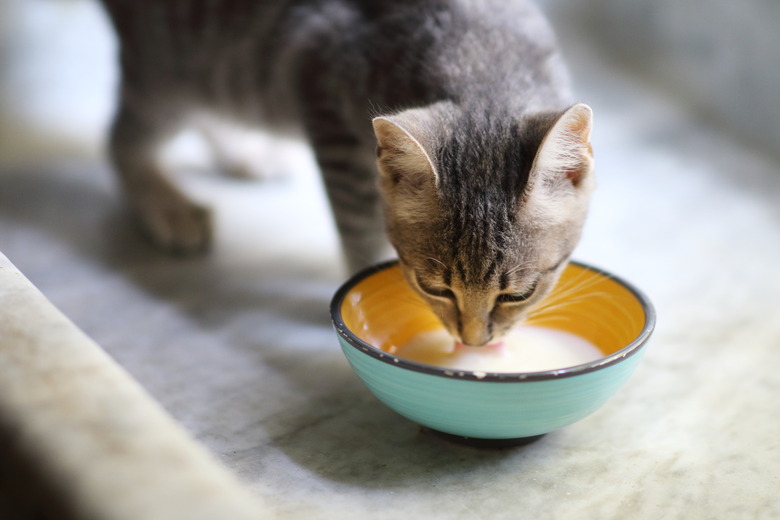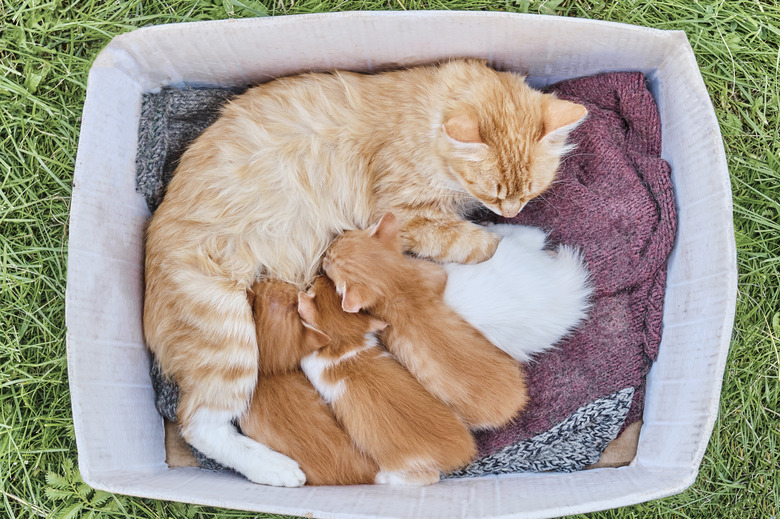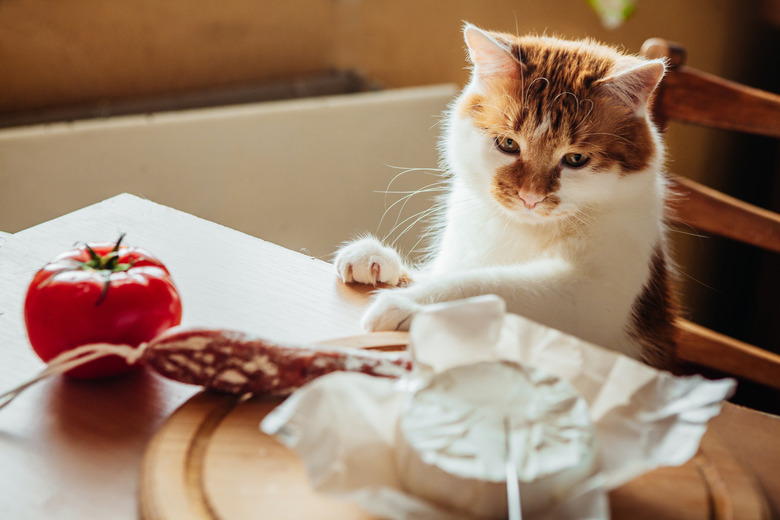Why Do Cats Love Dairy? (And Should They Have It?)
If you share your home with a cat, you've likely noticed that they are just as adept at begging for snacks as dogs are. While some kinds of human foods (such as cooked, unseasoned meat) are just fine to share with your cat, others should be given sparingly or avoided altogether. There are plenty of cute photos and illustrations of cats lapping from a bowl of milk — not to mention stories of them stealing cheese right off of someone's plate — but are dairy products safe for cats to consume?
Do cats like dairy?
Do cats like dairy?
Though some cats are known to be picky eaters, many will spring into action when they detect a delicious cheesy aroma. They may even be interested in the bowl of ice cream you're digging into! Though cow's milk isn't part of a cat's diet (and shouldn't be, as we'll see), it's no surprise that cats are tempted by dairy-rich foods like cheese, yogurt, and ice cream. Milk contains proteins, fats, and sugars that likely taste (almost) as good to cats as they do to humans.
Can cats eat dairy?
Can cats eat dairy?
Sadly, as many humans have learned the hard way, our noses don't always lead us to foods that agree with our stomachs. The same can be said for cats and dairy. Though your cat may lick a yogurt cup clean with gusto, dairy consumption does not make for a healthy feline digestive system.
Kittens rely on their mother's milk for sustenance from the time they are born until they are weaned onto solid food at about 4-6 weeks old. Kittens are able to consume their mother's milk due to the presence of the enzyme called lactase in their guts. Lactase is responsible for breaking down the sugar known as lactose that is found in milk. Lactose is composed of two sugars, glucose and galactose, and lactase splits this into its respective components so it can be absorbed into the body through the small intestine.
Cats tend to lose the ability to produce lactase after about six months of age, as their bodies no longer need to be able to digest lactose once they have been fully weaned from milk. Because of this, the majority of adult cats are lactose intolerant and cannot digest dairy products. Lactose intolerance in cats is actually the norm, and many other mammals who rely on their mother's milk as babies (including humans!) cannot produce lactase after a certain age.
What happens if my cat eats dairy?
What happens if my cat eats dairy?
Food intolerance differs from an allergy in what symptoms occur upon consumption of the offending food. In people, consuming a food to which they are intolerant (like dairy) often results in uncomfortable, but not life-threatening, symptoms such as an upset stomach, nausea, diarrhea, and vomiting. A person who consumes food to which they are allergic (like peanuts or shellfish) may have more severe symptoms like hives, dizziness, or anaphylaxis which require medical assistance.
Intolerances and allergies in cats follow a similar pattern. A cat who eats dairy, or food containing dairy, may experience vomiting or diarrhea. Some cats are less sensitive to dairy than others and may experience little or no symptoms at all. If your cat doesn't get an upset stomach from eating small amounts of dairy here and there, it's generally not harmful to them, and they can consume it infrequently.
Still, as a general rule, it's wise to avoid regularly feeding any dairy products to your cat. In addition to the likelihood of stomach upset (and the equal probability of having to clean vomit or diarrhea off of your floors), dairy products aren't a regular part of a cat's diet and don't contain any real nutritional value for them. Milk is high in sugar and fat, which is why your cat loves it, but regular consumption of dairy can lead to an overweight kitty. Based on their body weight, a saucer of milk for a cat is the equivalent of a 12-inch pizza (in terms of the amount of dairy) for a human. While plenty of people can easily put away an entire pizza, it likely doesn't make them feel too great afterward — and the same can be said for cats.
In summary
In summary
Since the majority of adult cats are lactose intolerant, feeding them any dairy product such as cheese, yogurt, ice cream, or milk will likely cause stomach issues. Dairy isn't toxic to cats — but it isn't good for them due to the high sugar and fat content, nor do they need it as part of their diet. Feeding dairy too often can lead to gastrointestinal problems and weight gain, so it's best to avoid giving it as a treat or reward.


